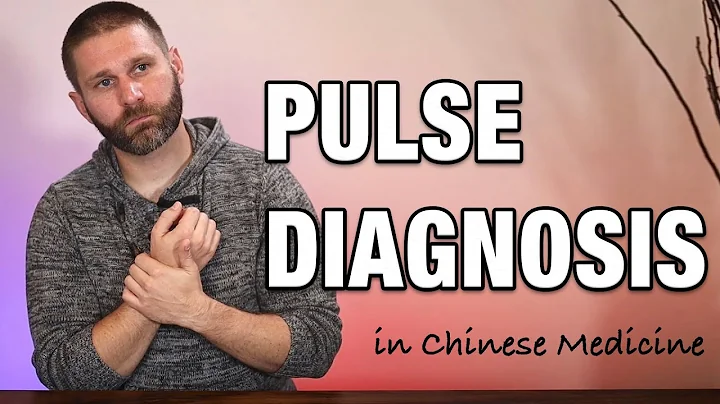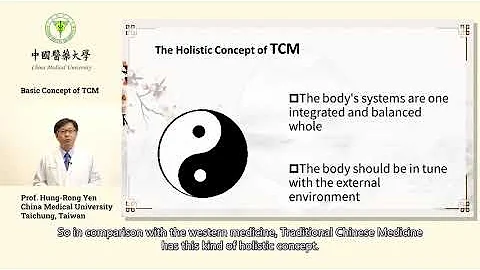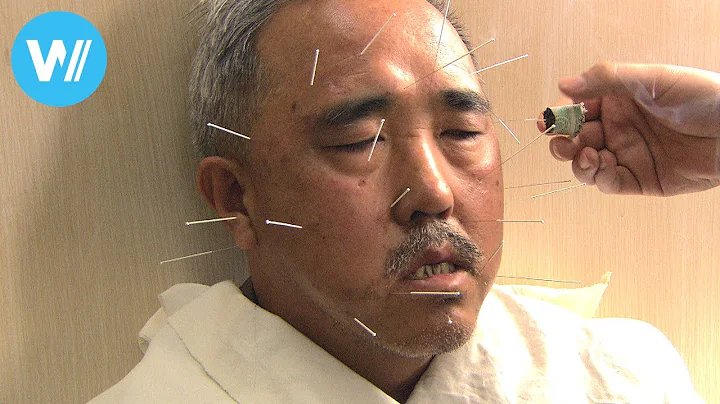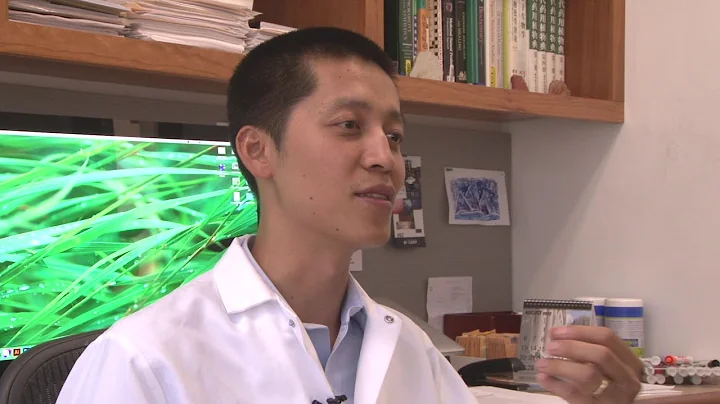Editor's note: One channel knows everything, one point knows everything Acupuncture . Traditional Chinese medicine is broad and profound, but it keeps secrets; Chinese medicine practitioners are intensive and knowledgeable, but mysterious. Is Chinese medicine really that mysterious? actually not. Chinese medicine can be found in thousands of households; Chinese medicine practitioners also have warmth and passion. red network and Hunan Provincial Hospital of Traditional Chinese Medicine launch the column "Uncovering the Secrets of Traditional Chinese Medicine" to explore the life stories of traditional Chinese medicine practitioners.

Red Net Moment News reporter Zhou Man Correspondent Tao Yan Changsha reports
The college entrance examination is the turning point in the destiny of generations of students, and it is also the place where dreams begin.
Chief physician, professor, master's tutor of the Second Affiliated Hospital of Hunan University of Traditional Chinese Medicine (Hunan Provincial Hospital of Traditional Chinese Medicine), the third batch of famous Chinese medicine doctors in Hunan Province, and a national veteran Chinese medicine expertOuyang HengThe story of Wang Jianxiang, heir to academic experience, begins with China's resumes college entrance examination starts.
In 1977, 20-year-old Wang Jianxiang became one of the 5.7 million candidates nationwide and entered the door of Hunan College of Traditional Chinese Medicine. "When I was a child, my parents and neighbors encouraged me to become a doctor when I grew up to save lives and heal the wounded." Wang Jianxiang said that as a child of the Second Affiliated Hospital of Hunan University of Traditional Chinese Medicine, he had heard and seen it since he was a child and felt that being a doctor was a job A respected profession. I am yearning for the medical industry from the bottom of my heart!
Based on faith, he resisted the temptation of money
In 1982, after graduating from college, Wang Jianxiang became a dermatologist at the Second Affiliated Hospital of Hunan University of Traditional Chinese Medicine, studying under Professor Ouyang Heng, a leading dermatologist in traditional Chinese medicine. He has just become a doctor, with a benevolent ambition to help the world. When he returns to the present, his actual work is very different from his ideal.
"Doctors work very hard, especially in the beginning. They work long hours and often have to work night shifts. The patients that dermatologists come into contact with are often 'miserable', and at the same time, their income is not high."
What makes Wang Jianxiang even more confused is that Patients' distrust of young doctors. "If the patient's mentality is not stable, it will be difficult to cure the disease quickly. When encountering patients who have not improved for a long time, it is common to lose temper and question our medical technology. There is a feeling that we cannot see the future."
In the 1980s, reform and opening up At the beginning, the market economy and began to prosper, which was when the national "sea wave" was rising. At that time, there were jingles circulating in society that "Those who repair their brains are not as good as those who shave their heads" and "those who make missiles and are not as good as those who sell tea eggs." One of Wang Jianxiang's best classmates in college became a "crab eater" and went to Shenzhen to start a medical device business.
"Jianxiang, please resign and come to Shenzhen. Work with me. You can earn more in one month than your salary in a year, and it's easier than being a doctor." Every half month, this classmate would call Wang Jianxiang. One phone call.
Wang Jianxiang told his teacher Ouyang Heng about his confusion and proposed the idea of resigning and going to work.
"Doctors have a longer gestation period than other professions. To be a doctor, you have to endure hardships, endure loneliness, and don't give up your ideals just because of temporary benefits." Ouyang Heng told me, using his own medical experience as an example. Wang Jianxiang, being a doctor is a profession that can give back to the society and help others, and is worth fighting for for a lifetime.
In the end, faith in his ideals defeated the temptation of money, and Wang Jianxiang chose to continue practicing medicine.
Based on ethics and doing everything to win the trust of patients
Gold cups and silver cups are not as good as the reputation of ordinary people. As a traditional Chinese medicine doctor, it often takes a long time to gain the trust of patients. This trust includes not only trust in medical skills and judgment, but also trust in moral integrity.
The trust between Wang Jianxiang and his patients is based on his work habit of doing everything in detail.
In 1995, Huang Yunxia from rural Shaodong, Hunan, came to the Second Affiliated Hospital of Hunan University of Traditional Chinese Medicine for medical treatment because of pustular psoriasis. The doctor who treated her was Wang Jianxiang. Before that, she had been treated in many hospitals in Hunan, but she never got better.
Pustular psoriasis is a rare clinical disease with severe morbidity and high mortality. The cause of the disease is still unknown.
Huang Yunxia's family also has two daughters who are in school. All the family's expenses depend on several acres of vegetable land.In order to pay for their daughter's tuition and his wife's medical expenses, Huang Yunxia's husband could only stay in his hometown to grow vegetables. Huang Yunxia, who was hospitalized, relied on medical staff to take care of her.
During the high fever period, Huang Yunxia took medicine at irregular times and times every day. Whenever she had a fever, she needed to take medicine. In order to allow her to take the medicine in time and to help her save some money, Wang Jianxiang cooked the medicine for her in the ward, and worked with the nurse to apply medicine all over her body every day.
"When Huang Yunxia first came to the hospital, she had a high fever, anuria, and pustules the size of mung beans all over her body, and her skin was peeling and red." Wang Jianxiang still remembers the patient's condition that year. He uses supportive therapy to improve immunity. During the high fever period, it was mainly used to clear away heat and detoxify. During the antipyretic period, medicine was used to nourish yin and clear away heat. During the recovery period, it was used to replenish qi and strengthen the spleen. After a few months, Huang Yunxia gradually recovered.
Two months after she was discharged from the hospital, Huang Yunxia's condition relapsed and she was admitted to the hospital again. However, this time her condition was not as severe as the first time and she recovered quickly.
In the following ten years, Huang Yunxia came to the Second Affiliated Hospital of Hunan University of Traditional Chinese Medicine every year to ask Wang Jianxiang to diagnose her. Her trust in Wang Jianxiang has also become stronger and stronger during these long years of getting along with him.
"In recent years, Huang Yunxia has not come to the hospital again. Her eldest daughter now works in Changsha. We contact her several times a year to ask about her current situation." Wang Jianxiang said.
"Many people's understanding of professional goals is just to make money, but doctors should not just make money, but should still firmly pursue the professional value of altruism in this era of diverse values. Understand that altruism is self-interest, and helping others is helping oneself." Wang Jianxiang believes that being compassionate is a necessary emotion for doctors. Only by having compassion, spending more time to provide spiritual understanding and support to patients, empathizing with patients, and gaining the trust of patients can he be called a good doctor.
Based on feelings, he helped Wenchuan and interpreted the "benevolence of doctors"
On May 12, 2008, the Wenchuan earthquake occurred. In the face of this catastrophe, everyone's hearts are tightly connected for each life. Wang Jianxiang said to himself, I am going to Wenchuan to do what a doctor should do. I am needed there!
In the second week after the earthquake, Hunan organized an emergency medical rescue team to go to Wenchuan, and Wang Jianxiang got his wish.
I didn’t take a shower or brush my teeth for more than ten days. I couldn’t sleep under the leaky earthquake-proof tent. I ate compressed biscuits three times a day... This may be a true portrayal of the life of every medical staff who personally experienced the Wenchuan earthquake, including Wang Jianxiang.
"After the earthquake, Wenchuan had a humid climate, lots of rain, rampant mosquitoes, and poor sanitary conditions. Many people had skin injuries, and the problems became more and more serious." Every day, Wang Jianxiang has to see hundreds of patients, and there is no examination equipment. The basic skills of looking, smelling, asking, and treating in traditional Chinese medicine are crucial here.
One day, at one o'clock at noon, Wang Jianxiang sent away the last patient and found a father and son standing outside the tent, dressed in ragged clothes. The child was only eight or nine years old, and his exposed skin was covered with red spots.
After talking, Wang Jianxiang learned that the child's name was Xiao Qiao and that he had been suffering from skin diseases and had not gotten better after taking a lot of medicine. After the earthquake, Xiao Qiao's skin disease became more serious. But this poor family has difficulty eating three meals a day and can no longer afford to treat their children. Xiao Qiao, who bowed his head and remained silent, touched the softest part of Wang Jianxiang's heart. He silently handed his Chinese food to the child and took out all the money in his wallet...
During his days in Wenchuan, Wang Jianxiang spent every day He personally applied medicine to Xiao Qiao, gave him a lot of medicine, and taught Xiao Qiao's parents how to treat it.
When he left Wenchuan, his parents came with Xiao Qiao to see him off. Xiao Qiao, who is usually taciturn, said to Wang Jianxiang: "Uncle, I will also be a doctor in the future, just like you."
"To save others is a kind of mind, to warm others with kindness; to save oneself is a kind of cultivation, on the road of life Continuously improve yourself." Wang Jianxiang believes that saving others is saving oneself. If one more person does good, the world will be warmer. As an ordinary person, you do not necessarily have to sacrifice your life for righteousness. Doctors are benevolent and can practice the professional spirit of "respecting life, saving lives and healing the wounded; being willing to contribute and having boundless love" in every word and deed.





















